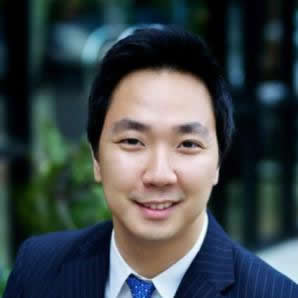My entire life seemed to hinge on a rather innocuous question: Do I know the answer? Whether at school, work, or personal life, knowing the answers mattered – supremely.
Frankly speaking, I spent the last three decades on the interminable quest of finding answers to literally everything. I prided myself in knowing the answers. It gave me a one-up advantage in my social sphere. In fact, I became an expert of “answers” (aka consultant).
Only in the last several years did I realize it was never about knowing the answers, but rather it was about knowing the right questions. Don’t get me wrong – answers are crucial. But, the answers don’t have to come from me. Rather, as a leader I realized my goal is to ask compelling questions and coach people to figure out the answers by themselves.
So, I have developed an addiction for asking the right questions. Michael Bungay Stainer is a master questioner. In fact, it’s not an understatement that the success of his job hinges on how well he asks questions. As the world’s leading executive coach, he shares seven questions that can elevate your leadership significantly. Sounds so simple, but really try to implement them in your life.
The Kickstart Question: What’s On Your Mind?
If you don’t know where to start, start with the kickstart question. You’ll be surprised by what comes up in the answers. As the person openly articulates his/her issue, you’ll get to see three themes: 3Ps (Projects, People, Patterns)
You might say, “So there are three different facets of that we could look at.”
- Project side ‒ any challenges around the actual content.
- People side – any issues with team members/ colleagues/ bosses
- Pattern side – any issues getting in your own way (aka blind spots)
The AWE Question: “And What Else?”
Here’s the key: Ask the AWE question at least three times. Another variation includes “Is there anything else?”
- “And what else could you do?”
- “And what else is a challenge here for you?”
- “And what else might be possible?”
TIP: Stop offering up advice with a question mark attached.
- “Have you ever thought of …?”
- “What about …?”
- “Did you consider …?”
The Focus Question: “What’s The Real Challenge Here For You?
So often when you’re talking to clients/colleagues/friends, they can go on and on with their issues/concerns. This one question will zoom into the real issue.
“If you had to pick one of them to focus on, which one would be the real challenge for you?”
TIP: Stick to “What” questions instead of “Why” questions because the latter puts them on the defensive.
- “Why did you do that?” –> “What were you hoping for here?”
- “Why did you think this was a good idea?” –> “What made you choose this course of action?”
- “Why are you bothering with this?” –> “What’s important here for you?”
The Foundation Question: “What Do You Want?”
Suppose that tonight, while you’re sleeping, a miracle happens. When you get up in the morning tomorrow, how will you know that things have suddenly gotten better?
“We live in the world our questions create.” – David Cooperider
The Lazy Question: How Can I Help?
AKA: “What do you want from me?”
Asking this question might be a bit awkward, so use the following lead-in phrases:
- Out of curiosity …
- Just so I know …
- To help me understand better …
- To make sure that I’m clear …
Many people might ask you “What do you think I should do about …?”
Resist the temptation to give your “expert” opinion. It’s the cheddar on the mousetrap. The truth is however good the answer is they will NOT implement it. Instead, say this:
“That’s a great question. I’ve got some ideas, which I’ll share with you. But before I do, what are your first thoughts?”
Wait for his/her response and then add, “That’s terrific. What else you could you do?” This is the perfect timing to insert the AWE question.
The Strategic Question: If You Are Saying “Yes” To This What Are You Saying “No” To?
Stainer is right: “Saying “Yes” more slowly means being willing to stay curious before committing.”
Think again in terms of the 3P model: Projects, People, Patterns
Projects
- What projects do you need to abandon or postpone?
- What meetings will you no longer attend?
- What resources do you need to direct to the “Yes”?
People
- What expectations do you need to manage?
- What relationships will you let wither?
Patterns
- What habits do you need to break?
- What belief about yourself do you need to let go?
The Learning Question: What Was Most Useful For You?
As you finish the conversation ask yourself, “What was most useful for you about this conversation?” Stainer says this question is like a “superfood – kale perhaps – compared with the mere iceberg-lettuce goodness of other questions. ‘What was most useful?’ helps hit the spot in at least six ways.”
This question helps people identify the OBT – the One Big Thing – that’s worth remembering.


 Paul Sohn
Paul Sohn
